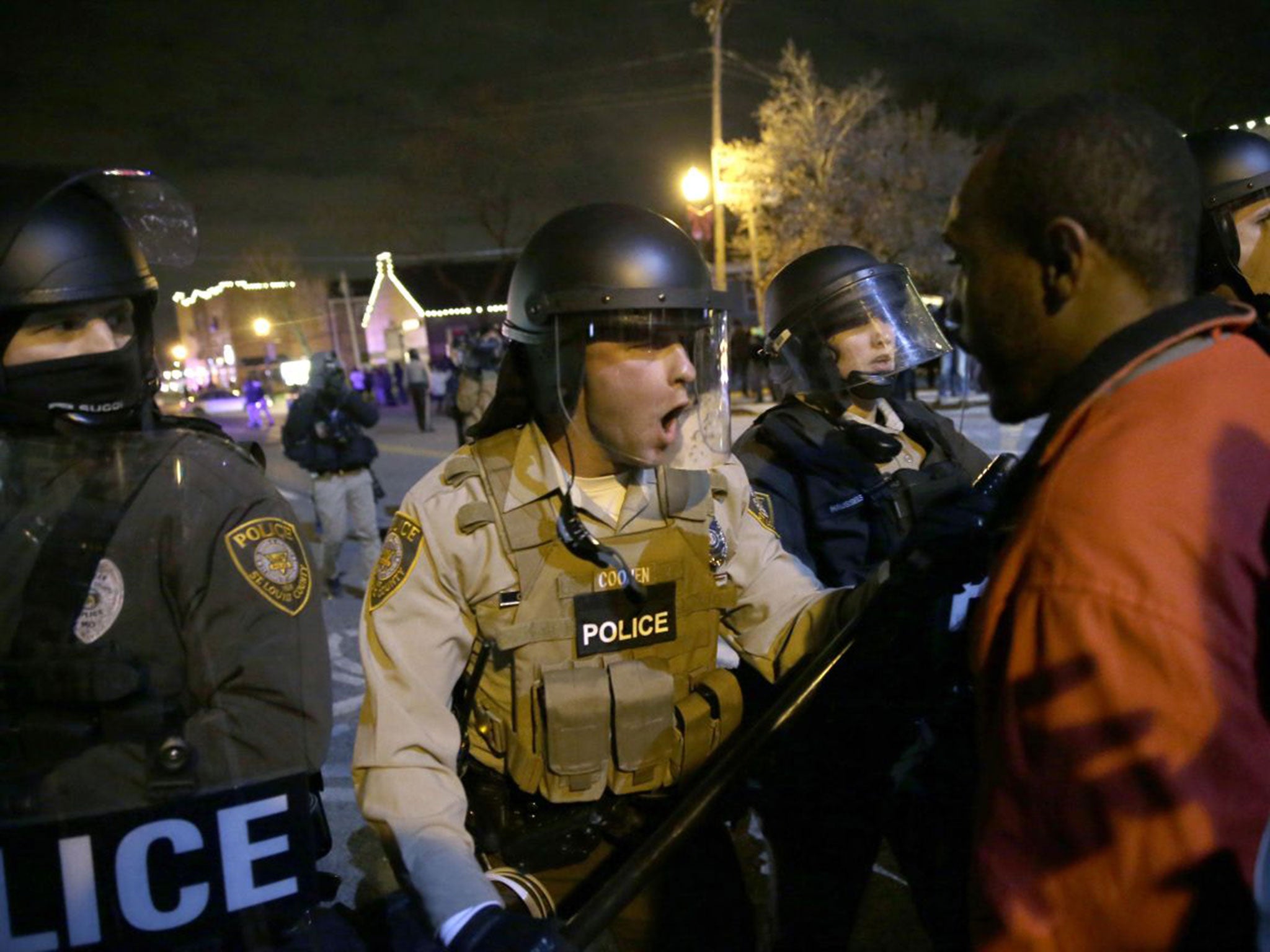Michael Brown shooting: What next for Ferguson and America following grand jury decision?
A look at some of the likely next steps in Ferguson

Your support helps us to tell the story
From reproductive rights to climate change to Big Tech, The Independent is on the ground when the story is developing. Whether it's investigating the financials of Elon Musk's pro-Trump PAC or producing our latest documentary, 'The A Word', which shines a light on the American women fighting for reproductive rights, we know how important it is to parse out the facts from the messaging.
At such a critical moment in US history, we need reporters on the ground. Your donation allows us to keep sending journalists to speak to both sides of the story.
The Independent is trusted by Americans across the entire political spectrum. And unlike many other quality news outlets, we choose not to lock Americans out of our reporting and analysis with paywalls. We believe quality journalism should be available to everyone, paid for by those who can afford it.
Your support makes all the difference.The decision not to indict Ferguson police officer Darren Wilson in the shooting of unarmed black teenager Michael Brown resolves one aspect of the case, but additional investigations remain and the community for months has been bracing for demonstrations in anticipation of the grand jury's decision.
Q. What other investigations are underway?
A: The FBI and the Justice Department are continuing to investigate the shooting for potential civil rights violations. Investigators would need to satisfy a rigorous standard of proof in order to mount a prosecution. Whereas the county grand jury could consider multiple charges, Justice Department lawyers have a single focus: whether it can be shown that Wilson willfully deprived Brown of his civil rights. That is a difficult burden to meet, especially considering the wide latitude given to police officers in using deadly force. Some other past high-profile police shootings, including the 1999 killing of Amadou Diallo in New York City, did not result in federal prosecutions.
Q. What about broader allegations of racial insensitivity on the part of the Ferguson police department?
A: Beyond the shooting itself, the Justice Department is conducting a wide-reaching investigation into the practices of the entire department. That investigation is focusing on stops, searches and arrests and generally looking for patterns of discrimination within the overwhelmingly white department. It has the potential to require major changes in the policing methods of the Ferguson force. Such broader reviews typically rely on data and interviews in the community and can take far longer than a criminal investigation.
The Justice Department has initiated roughly 20 investigations of troubled police departments in the past five years, or more than twice the number undertaken in the five years before that.
And regardless of the outcome of the criminal investigation, there's also the potential that Brown's family could file a wrongful-death lawsuit against Wilson.
Q: How long might these other investigations go on?
A: The Justice Department has not set a timeline for either investigation, though outgoing Attorney General Eric Holder has said he expects the federal investigation into the shooting to be concluded before he leaves office.
Q: How will authorities deal with any protests?
A: Holder has appealed for calm among police and protesters and President Barack Obama urged the people of Ferguson "to keep protests peaceful." Police have been bracing for protests in the community, particularly after the unrest that roiled Ferguson in the weeks after the shooting. Missouri Gov. Jay Nixon pre-emptively declared a state of emergency and activated the National Guard in anticipation of potentially raucous protests, with the St. Louis County Police Department placed in charge of security. Gun sales surged before the grand jury decision and some shop owners boarded up their stores.
A federal law enforcement team has been working with top commanders in Ferguson and from neighboring police departments to help reduce tensions and build trust.
Q: Are there longer-term efforts to deal with underlying problems?
A: Nixon several days ago named 16 members to a panel aimed at helping the community heal after the shooting. The commission, which will study underlying social and economic conditions, is expected to make recommendations in a report due by September 2015.
AP
Join our commenting forum
Join thought-provoking conversations, follow other Independent readers and see their replies
Comments